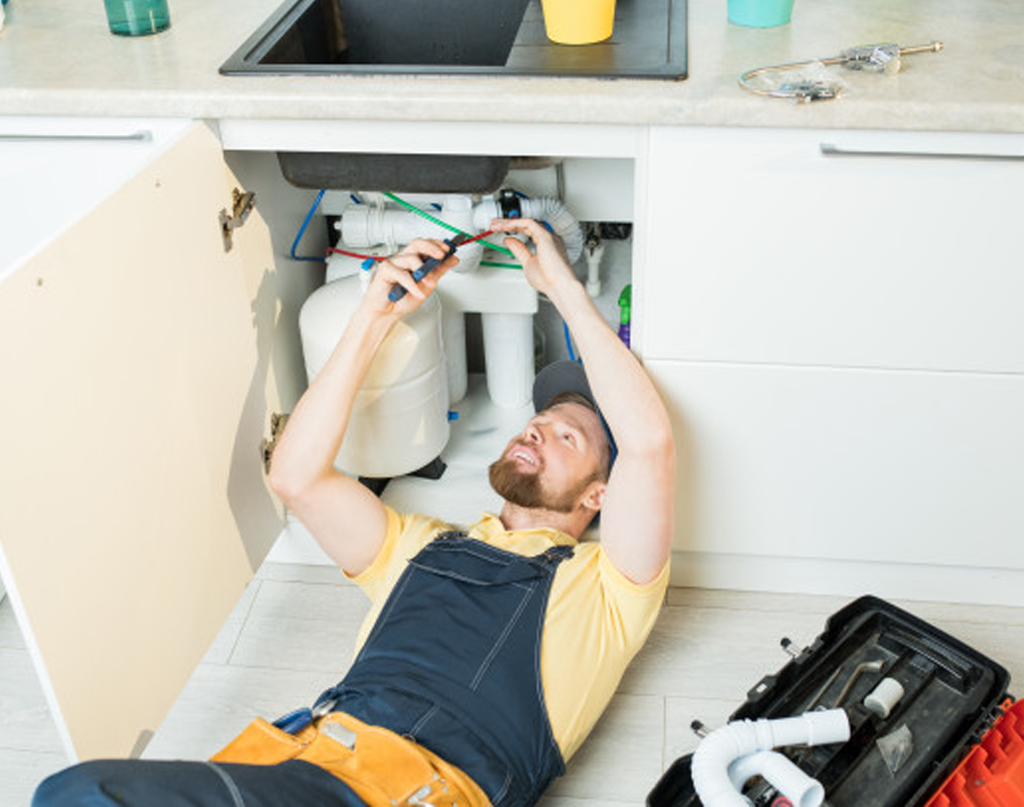How To Avoid Winter Drain Problems

If there is one thing people do not want during the winter season, it is a clogged drain. In some cases, there could be serious ramifications if you do not consider the following tips. Winter drain problems and their repairs can put a damper on your mood as well as your wallet.
What can you do to solve these issues? These following tips cover drains for all aspects of your home this winter.
Do Not Pour Grease Down the Kitchen Sink
This is easily the #1 mistake homeowners make throughout the year. When you pour grease or any kind of fats or oils down the drain, you’re just asking for a catastrophic clog.
When grease, oils or fats are poured down the drain, it might seem harmless since it’s a liquid. But the liquid quickly cools, congeals and then becomes a sticky trap that catches anything else going down the drain. And eventually, it becomes one big clog that’s completely blocking your drain. Drain replacement or repairs can put a severe dent in your finances.
Instead, collect oils, fats and grease into a re-sealable can or cup. As an alternative, place the can of grease, oil or fats into a refrigerator unit and wait for the substance to congeal. After the material congeals, simply throw out the can or recycle.
Avoid Clogging Your Garbage Disposal
While grease is the absolute worst substance you can put in your drain, there are other objects that should be avoided all together. This is especially pertinent if you have a garbage disposal unit as part of your drain system. These items include the following:
- Bones
- Fibrous fruits/vegetables: This includes celery, artichokes, asparagus, lettuce
- Coffee Grinds
- Fruit Pits: Includes Avocado pits, peach pits, etc.
- Corn Husks
- Egg Shells
- Potato Peels
- Pasta, Rice and Grains
If these items much like grease or oil, can clog up your drain or prevent the garbage disposal blades from working properly. If the blades are jammed, this can also increase the buildup in the disposal drain.
Water Heater Failure
Hot water heater failure is a common problem during the winter due to cold temperature changes. The water coming into the heater is colder, and drops the overall temperature of the water. When the water is colder, it becomes harder to heat, and the water heater must work more intensely to get the water hot. The winter months also requires the use of more hot water to stay warm in the colder weather, so the water heater is used more often. A bad part or build-up can cause water heater failure during the winter months due to excessive use. Once a part is broken, a plumber has to be called to fix the issue. To prevent this issue from occurring, be sure to set your water heater temperature to 120 degrees and reduce your hot water usage.
Frozen Pipes
When you combine high water pressure with freezing temperatures, water can quickly freeze your pipes. Frozen pipes are a common problem during the winter months, and can also lead to pipe breakage. Frozen pipes can also go undetected until the problem becomes severe. A sign that your water pipes may be frozen is a light water flow from your shower or sinks. If you suspect your pipes may freeze, leave a sink on very low, just so that the water is slightly dripping out. This can help reduce pressure and keep water flowing. To prevent freezing, you can also use insulation wrapping on your pipes. If water seems to be flowing short or you want to look into prevention methods, call Fix-It 24/7 today.
Service You Can Count On
We came from humble beginnings, having started as just a small family
business. And while we’ve experienced growth, Fix-It 24/7





